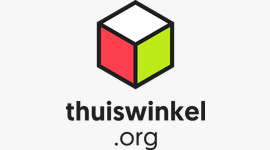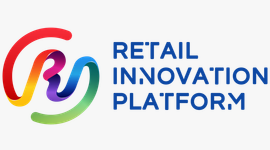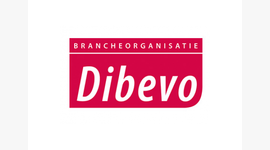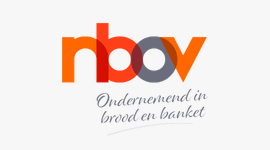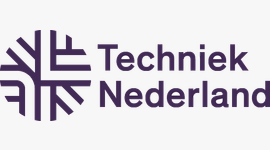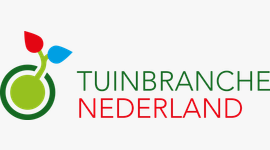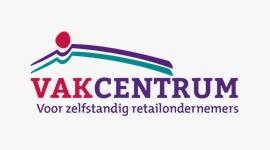Digital Transformation: Threat or Opportunity?
Blog
Bron: Yenlo
Digital Transformation is for a company the difference between winning and losing. Companies that were once great are now extinct. For example: Toys "R" Us was once a successful toys store chain, but now out of business after Amazon shook up the retail market with online e-commerce offering customers with greater selection, lower price, and better customer experience.

In some cases, much younger companies (for example: Uber, Airbnb, Stripe) are emerging as major disruptors in their industry, using their digital platforms that prove to be a threat to their competitors. Over the past twenty years, it has been proven that the industry disruptors where the first to embrace Digital Transformation, and those other companies that followed were successful by surviving the competition.
Interactive Cycle
How and why Digital Transformation is playing such a huge role in the growth of organizations? A famous and ancient Greek quote says, "The Only Thing That Is Constant Is Change", and this concept holds true today. Digital innovation is growing exponentially, and a staggering amount of technologies have emerged and are maturing all at the same time. Think about Mobile, Social Media, Artificial Intelligence, The Internet of Things, Big-Data-driven analytics, 3D printing, managed services, autonomous vehicles, virtual reality, live streaming, and many others. These new technologies enable digital business models in retail, and services industries, which are making life easier for consumers. Consumers have grown used to this and are now raising their expectations across the board. So, if your company is not in utilizing these digital innovations, your customer will move on to other companies that are offering a better experience. Digital Transformation is an iterative cycle that utilizes digital innovation and adoption, to improve customer experience, operational efficiencies, and introduction of digital business models.
Implementation
The concept of Digital Transformation sounds simple but putting it into action is a different matter. Digital Transformation is about taking proactive steps to incorporate digital technologies into your business model. This might mean making uncomfortable changes earlier than you anticipate and reconsidering business processes that in the past worked great for your company. With Digital Transformation, Technology moves more to the center of what a business does, and therefore IT is a key player with the responsibility to pro-actively participate in corporate strategy.
There are multiple aspects of implementing or initiating Digital Transformation for any business, and in this blog, we focus on core technology areas in IT that can enable Digital Transformation:
- API Management: Perhaps the most critical aspect for Digital Transformation are APIs. APIs enable digital interaction between service providers and consumer (both internal and external customers). Having an API management platform enables the rapid creation of digital assets that can lead to the creation of a complete digital ecosystem of the enterprise.
- Micro-Services: A Software development technique, in which modular fine-grained service is built to do one thing well. These services are organized around business capabilities. They can run in the single process, can be independently deployable/replaceable/upgradable, scalable and fault tolerant. They assume the output of one service will be the input of some other, as yet unknown, service. Microservices bring speed and agility in developing new applications.
- Middleware: Make enterprise data accessible by having an integration middleware optimized for centralized and decentralized ESB capabilities to integrate digital services, data, legacy and proprietary systems, and SaaS apps. Middleware helps you build systems integrations faster and easier.
- Analytics and Events Stream Processor: Rule to follow with any digital activity is to record everything. This enables you to define metrics, measure success, make data-driven decisions. Also provides real-time, intelligent, actionable business insights, and data products for digital businesses. Stream processors allow you to collect events via multiple transports and in multiple formats. It uses streaming SQL to process streams, detect complex events, calculate time-based aggregations and make predictions using machine learning models.
- Identity and Access Management: With multiple Digital technologies/platforms come challenges of security, authentication and authorization with each of them, you would need a platform for identity federation and SSO with comprehensive support for adaptive and strong authentication. IAM platforms can federate identities, secure access to web/mobile applications and endpoints, and bridge versatile identity protocols across on-prem and cloud environments.
- IoT: a Digital platform is not complete without a scalable platform that can connect, interact and exchange data with a network of devices, vehicles, drones and home appliances that contain electronics, software, actuators, and connectivity.
As you start your digital journey with the above core technologies in IT, to see some "quick results" consider the following:
- Implement a "Cloud first" strategy for IT operations that provides scalability, fault-tolerance, cost-saving, security, reliability and productivity benefits, so you don’t have to re-invent wheel when it comes to IT operations.
- Leverage an open source, open standards middleware platform that enables all the above-mentioned core technology areas, so you will not be locked into expensive proprietary technologies.
- Offload reactive responsibilities from IT with managed services and automation, so you will reduce IT operational costs.
- Adopt Agile Development and DevOps to keep up with rapid change in business demand and faster delivery time to market.
WSO2
There are multiple technology providers that have offerings in above areas. We have observed, that only WSO2 provides a comprehensive single stack, technology platform that is open standard, open source, and has offerings in all above core technology areas. Having the same technology for all of core areas can prove to be great advantage, as you will not have to deal with administration night-mare with compatibility of products and fragmented developer experience when developing any application utilizing multiple core products. There is a tremendous value with having the right combination of technology products and processes in the journey of digital transformation. They can help create an agile enterprise to act rapidly and react to changing data, competitive conditions and strategies fast enough to succeed and guard against disruption.
If you’ve been thinking about how you can get started with digital initiatives, or if you are already in process and need help with WSO2 platforms mentioned above, reach out to us. We can develop a minimum viable product (MVP) or put together a proof of concept (POC) that will help you make optimal strategic decisions for your company.


